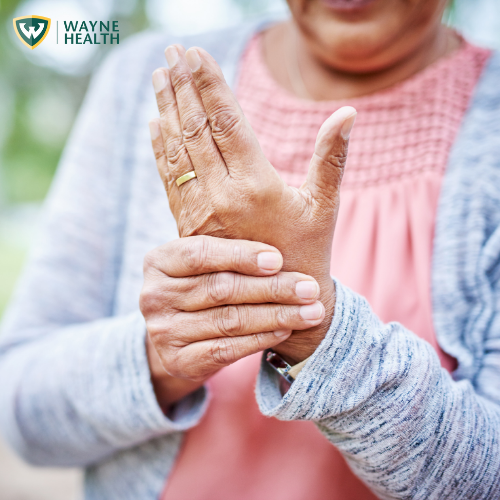June is Scleroderma Awareness Month
June 1, 2022
By Ilyes Benchaala, M.D., Divison of Rheumatology
Scleroderma is a disease that leads to a state of aberrant inflammation leading to scarring of different tissues. The whole mark of the disease is the progression of skin changing, leading to tight, shiny skin on the arms, hands and/or face.
Initially, the skin swells up in the fingers and hands, which causes making a fist to become difficult. Often times there is an intermittent change in blood flow to fingers which can cause pain and a change in color of skin with ulcer formation of fingertips. This is called Raynaud’s Phenomenon. In general, the swelling of the skin is associated with swelling of the joints which causes pain and stiffness in the hands that can last hours in the mornings.
Besides skin, joints and vessels, oftentimes there is the involvement of other organs including:
- The esophagus and bowels (heartburn, issues with digestion) and
- The lungs and heart (scarring of lungs and increased heart pressure)
Most patients will develop a certain degree of scarring of lung tissue leading to shortness of breath and cough, affecting patients’ quality of life.
In The Rheumatology Division of Wayne Health, we treat patients with Scleroderma at the outpatient clinic. Most patients require multispecialty treatment collaboration with other doctors, such as a Pulmonologist, Gastroenterologist, Dermatologist, Physcial therapist and a Rheumatologist. Each manifestation of disease requires investigation to measure the extent of organ involvement to guide therapy.
The overall prognosis of the disease depends on the extent of lungs and heart involvement (Pulmonary arterial hypertension, which is increased pressure in the heart circuit pumping blood to the lung for oxygenation) which can lead to failure of the heart muscle (Heart failure).
It is imperative to recognize the disease early on and screen for those different organ manifestations to start therapy to improve outcomes and quality of life of the patients with Scleroderma.
To schedule an appointment with Dr. Benchaala, visit our appointments page.
